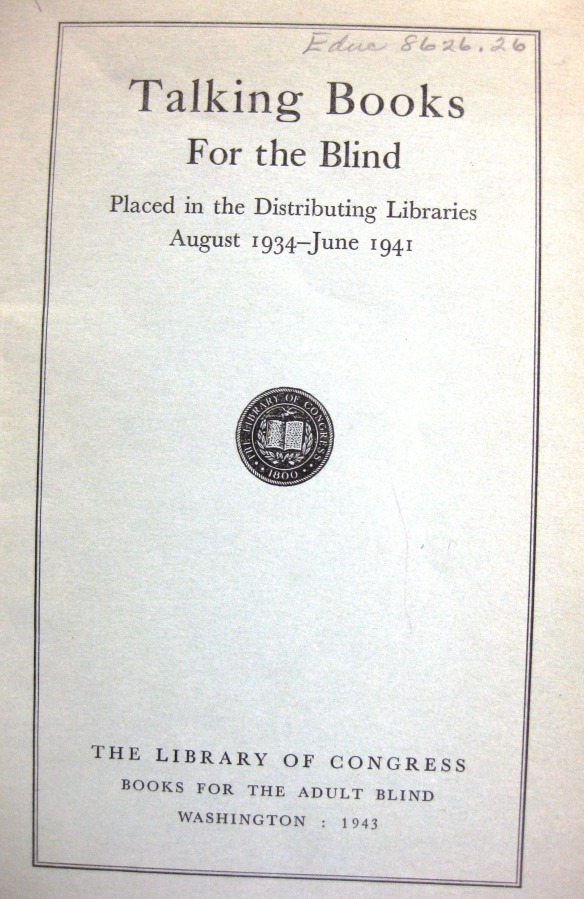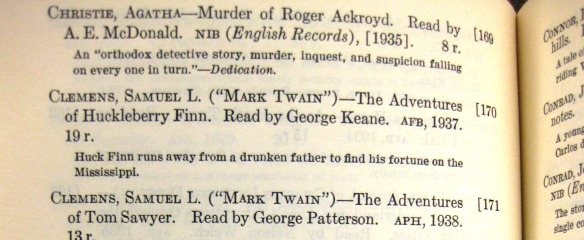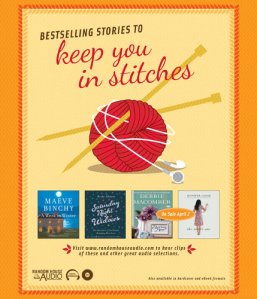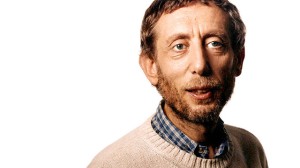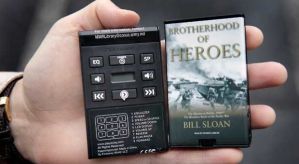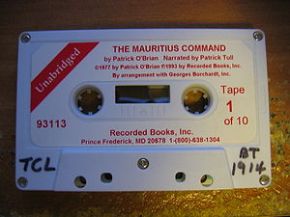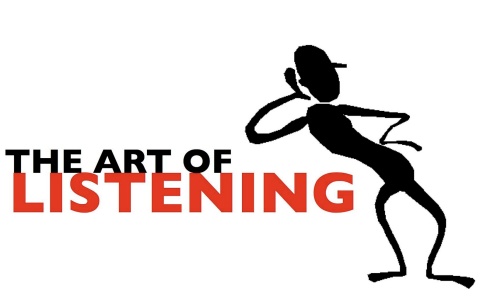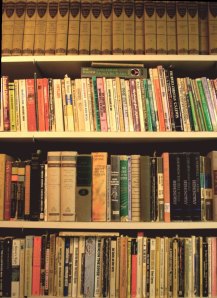
A few months ago Reddit posted the following question: “What are some audiobooks you’d consider better experiences than actually reading the book?” Though some might take issue with the phrase “actually reading,” the question nevertheless generated some interesting recommendations. I’ve posted the highlights below:
READ BY THE AUTHOR:
Barbara Kingsolver, Prodigal Summer
Bill Bryson’s books (A Short History of Nearly Everything, A Walk in the Woods, In a Sunburned Country, The Life and Times of the Thunderbolt Kid, Notes from a Small Island)
David Foster Wallace, Consider the Lobster and Other Selected Essays
Douglas Adams, Hitchhiker’s Guide to the Galaxy
EB White, Charlotte’s Web
George Carlin’s books
James Dickey, Deliverance
Jon Stewart, America (The Audiobook): A Citizen’s Guide to Inaction
Khaled Hosseini, The Kite Runner
Michael Chabon, Summerland
Neil Gaiman’s works (Neverwhere, The Graveyard Book, Stardust, Coraline)
Nick Cave, The Death of Bunny Monroe
Ray Bradbury, Fahrenheit 451
Sherman Alexie, The Absolutely True Diary of a Part-Time Indian
Stephen Colbert, I Am America (And So Can You!)
William S. Burroughs, Junky
Woody Allen, Without Feathers
MEMOIRS:
Alan Partridge, I, Partridge: We Need to Talk about Alan (Alan Partridge aka Steve Coogan)
Barack Obama, Dreams from my Father
Bill Clinton, My Life (comment: “it feels like you’re having a beer with him while he’s chatting”)
Christopher Hitches, Hitch 22: A Memoir
David Attenborough, Life on Air: Memoirs of a Broadcaster
David Sedaris, Me Talk Pretty One Day
Frank McCourt, Angela’s Ashes
Henry Rollins, Get in the Van
Kathy Griffin, Official Book Club Selection
Michael Caine, What’s It All About?
Michael Palin, Diaries 1969-1979: The Python Years
Penn Jillette, God, No!: Signs You May Already Be an Atheist and Other Magical Tales
Robert Evans, The Kid Stays in the Picture
Sarah Palin, Going Rogue: An American Life
Steve Martin, Born Standing Up: A Comic’s Life
Tina Fey, Bossypants
Tracy Morgan, I Am the New Black
Waylon Jennings, Waylon: An Autobiography
CELEBRITY NARRATORS:
The Bible (James Earl Jones or Johnny Cash)
AA Milne, Winnie the Pooh (Alan Bennett)
Anne Frank, The Diary of Anne Frank (Selma Blair or Wynona Ryder)
Adam Mansbach, Go the F**k to Sleep (Samuel L. Jackson)
Barney Stinson, The Bro Code (Neil Patrick Harris)
Bret Easton Ellis, Imperial Bedrooms (Andrew McCarthy)
Bret Easton Ellis, Lunar Park (James Van Der Beek)
Carl Sagan, Contact (Jodie Foster)
Cormac McCarthy, All the Pretty Horses (Brad Pitt)
Cressida Cowell, How to Train your Dragon (David Tennant)
CS Lewis, The Screwtape Letters (John Cleese)
Edgar Allan Poe’s work (Vincent Price)
EL James, Fifty Shades of Grey (Gilbert Gottfried)
Ernest Hemingway, The Old Man and the Sea (Charlton Heston)
Ernest Hemingway, The Sun Also Rises (William Hurt)
Graham Greene, The End of the Affair (Colin Firth)
Homer, The Iliad (Derek Jacobi)
Homer, The Odyssey (Ian McKellen)
Howard Zinn, A People’s History of the United States (Matt Damon)
Jack Kerouac, On the Road (Matt Dillon)
Jerome K. Jerome, Three Men in a Boat (Hugh Laurie)
Keith Richards, Life (Johnny Depp)
Kurt Vonnegut, Slaughterhouse-Five (Ethan Hawke)
Neil Gaiman, Anansi Boys (Lenny Henry)
Philip K. Dick, A Scanner Darkly (Paul Giamatti)
Samuel Pepys, The Diary of Samuel Pepys (Kenneth Branagh)
Stephen King, Desperation (Kathy Bates)
Sylvia Plath, The Bell Jar (Maggie Gyllenhaal)
Tim O’Brien, The Things They Carried (Bryan Cranston)
Vladimir Nabokov, Lolita (Jeremy Irons)
GREAT NARRATORS:
Abraham Verghese, Cutting For Stone (Sunil Malhotra)
Anthony Burgess, A Clockwork Orange (Tom Hollander)
Charles Dickens, A Christmas Carol (Frank Muller)
Charles Dickens, David Copperfield (Frederick Davidson)
Charles Dickens, Nicholas Nickleby (Alex Jennings)
Cormac McCarthy, The Road (Tom Stechschulte)
Ellie Wiesel, Night (George Guidall)
Friedrich Nietzsche, Thus Spoke Zarathustra (Alex Jennings)
George Orwell, 1984 (Simon Prebble)
The Harry Potter Books (Jim Dale or Stephen Fry)
Iain Banks, The Wasp Factory (Peter Capaldi)
Jane Austen’s novels (Juliet Stevenson or Elizabeth Klett)
John Kennedy Toole, A Confederacy of Dunces (Barrett Whitener)
John Mortimer, Rumpole of the Bailey books (Leo McKern)
JRR Tolkien, The Hobbit (Rob Inglis)
Patrick O’Brian, Master and Commander: Aubrey/Maturin series (Patrick Tull or Simon Vance)
PG Wodehouse books (Jonathan Cecil or Martin Jarvis)
Richard Adams, Watership Downs (Ralph Cosham)
Stephen King’s books (any read by Frank Muller)
Victor Hugo, Les Miserables and The Hunchback of Notre Dame (George Guidall)
MULTIPLE NARRATORS:
The Bible Experience (Angela Bassett, Cuba Gooding Jr, Samuel L. Jackson, Blair Underwood)
Emma Donoghue, Room (Michael Friedman, Ellen Archer, Robert Petkoff, Suzanne Toren)
Jonathan Safran Foer, Extremely Loud and Incredibly Close (Jeff Woodman, Barbara Caruso, Richard Ferrone)
Junot Diaz, The Brief Wonderous Life of Oscar Wao (Jonathan Davis and Staci Snell)
Kathryn Stockett, The Help (Jenna Lamia, Bahni Turpin, Octavia Spencer, Cassandra Campbell)
Philip Pullman, His Dark Materials (Pullman + full cast)
The full list can be found here: “What are some audiobooks you’d consider better experiences than actually reading the book?”
